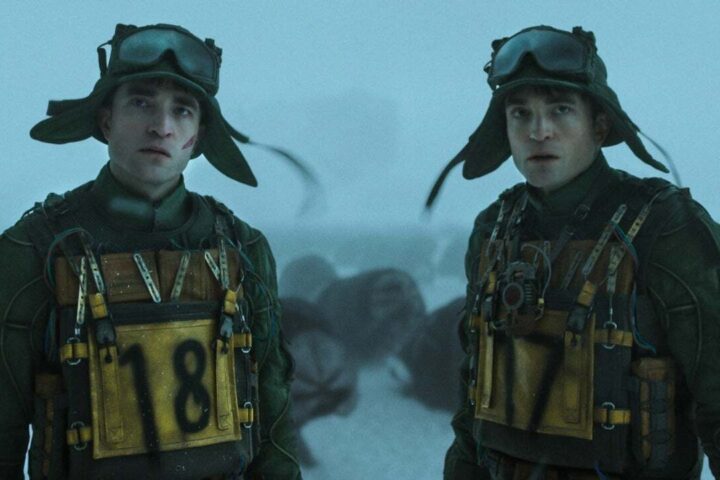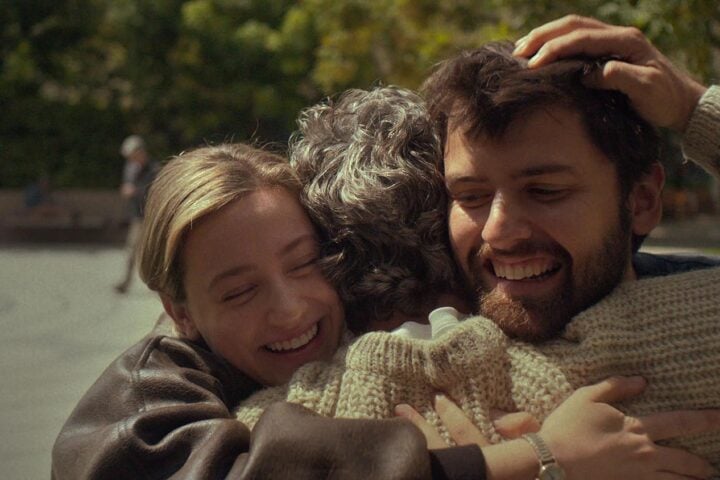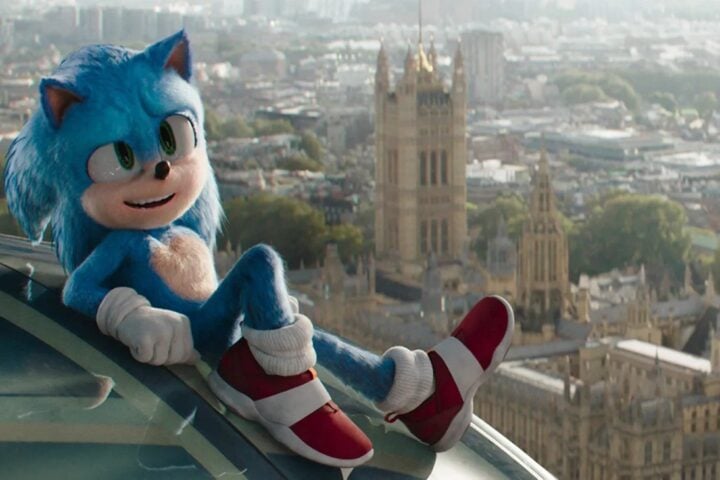Michel Gondry hit his stride with Eternal Sunshine of the Spotless Mind. Human Nature, his first attempt at narrative long-form filmmaking, was a series of beautiful illusions that never really cohered. Unlike his mentor, Spike Jonze, Gondry seemed uncomfortable dealing with actors, garnering colorful but one-dimensional performances from Patricia Arquette and Tim Robbins. Brush all those memories aside, though, because the hallucinogenic quality of Gondry’s music videos perfectly melds with his seemingly fleeting attention span throughout Eternal Sunshine, where his faults as a storyteller are directly tied to the film’s strengths.
Written by Charlie Kaufman, Eternal Sunshine is less meta than Being John Malkovich and Adaptation. but more reality-bending than your average Philip K. Dick sci-fi procedural. Introverted nice guy Joel (Jim Carrey) hears of an experimental procedure to erase troubling memories and dives right in when his impulsive girlfriend, Clementine (Kate Winslet), washes her brain entirely clean of their love-shattered relationship. As kindly Dr. Mierzwiak (Tom Wilkinson, whose bedside manner and medical detachment is both comforting and dark) and his geek-chic trio of assistants (Kirsten Dunst, Mark Ruffalo, and Elijah Wood) put Joel through erasure, the bottom falls out of the film.
Washed-out realism gives way to vivid surrealism, and the labyrinth of Joel’s mind becomes an awe-inspiring collage of mad visions. Joel and Clementine race through self-obliterating—and distinctly Bergman-esque—evocations of a deteriorating relationship and find themselves in apartments crossed with seascapes, larger-than-life Alice in Wonderland kitchens, Escher-like bending walls, and Francis Bacon mutations. Joel’s memories go backward in time from the last gasp of their love to their initial spark, but there are sideways detours along the way that take him to infancy and memories of his first childhood humiliation. James Joyce might have applauded this caustically Dickian and Gnostic rendition of his “Nighttown” from Ulysses, with Clementine as Joel’s face-changing Penelope/Molly Bloom.
Gondry is an astute and clever technical maestro, and Eternal Sunshine is rich with choreographic invention. It helps that he’s working from Kaufman’s most humane script. Where Adaptation.’s touching scenes between Meryl Streep and Chris Cooper’s characters were undermined by so much meta gobbledygook, the doomed romance between Joel and Clementine is Eternal Sunshine’s narrative backbone, even as Kaufman errs on the side of the clinical and aloof. He can’t help writing clever, which is fine, but that often leaves characters stranded like chess pieces. That said, there’s a depth and multilayered believability to the refreshingly low-key Carrey (playing the role for drama, not slapstick) and the high-energy Winslet (in a performance as wild as her character’s ever-switching hair color).
As the highs and lows of Joel and Clementine’s relationship blip across the screen, sometimes jumping across timelines from the beginning to the end of their relationship in mid-scene, Kaufman tosses in nimble subplots involving Dr. Mierzwiak and his assistants. Duplicitous and lovestruck Patrick (Wood) has stolen Joel’s memories and is attempting to use them to get into Clementine’s pants, and a bizarre unrequited love triangle forms between Stan (Ruffalo), Mary (Dunst), and Dr. Mierzwiak. Perversions of memory inevitably follow, and Eternal Sunshine begins to contemplate how many of its characters have had bad memories scrubbed clean—how many times, and whether that destroys essential parts of who they are.
Eternal Sunshine is a comedy that has the bracing fright of an identity-crisis horror film. The initial 15 minutes, showing Joel and Clementine meeting for the “first” time and having an attraction they can’t put their finger on, isn’t played cute. They’re both so fried from off-screen memory wipes that they’ve lost most aspects of their personality. It’s an initial note of sweetness and despair as the lost souls attempt to reconnect, and it says something that Gondry and Kaufman don’t rush headlong into their subsequent fantasia. What’s more to the point is their great premise eventually runs out of steam, and like many a Philip K. Dick novel they have a hell of a time wrapping things up at the climax. Eternal Sunshine is too muddled to be considered a masterpiece, but Gondry’s naked cinematic ambition goes a long way here.
Joel attempts to fight the erasure of his memories, and Eternal Sunshine admits early on that it’s a fight he cannot win. That he keeps on fighting anyway is the crux of the film, and a breakthrough for Kaufman—writing about the human condition more than questioning our lives as self-made fictions. The fantasies here are more “real” than anything that Kaufman has ever written, because they define who we think we are. Joel rediscovers his love for Clementine through fantasy, which is to say through his clouded memories of her. Such things are precious, and Gondry revels in that world in all its fleeting, flickering, ever-mutating joys.
Image/Sound
Kino Lorber’s 4K release perfectly renders the muted beauty of Ellen Kuras’s cinematography. Colors are bolder than they were on the previous Universal Blu-ray, revealing richer shades to the neutral colors of Joel’s home and Lacuna’s office. Likewise, shots that were partially washed out by a middling transfer have been restored to their intended sharpness. Overall this is easily the best the film has looked on home video, and the most like its original theatrical presentation. The soundtrack is just as robust, emphasizing the overwhelming spectacle of the film’s sound mix, including the way that Jon Brion’s ambient score meshes with smatterings of indie rock. Throughout, the dialogue is never buried in the near-constant din.
Extras
The 4K recycles all of the extras included in the earlier Blu-ray, most prominently a chummy, if only sporadically revelatory, commentary between Michel Gondry and Charlie Kaufman that too often finds them letting a tantalizing detail about the production, such as Gondry’s inventive in-camera effects, drift away without further expansion. Elsewhere, Gondry sits down with Carrey and Winslet, separately, with each actor discussing what drew them to the project and how they approached their parts. The director also contributes a solo interview that offers some insight into how he staged his practical effects, while Kuras also gets to speak about the unique (and, in retrospect, influential) look of her cinematography. An extended breakdown of one of Eternal Sunshine’s sequences hammers home how much Kuras and Gondry accomplished on set to craft the film’s loopy sense of movement and surrealism. Also included is a series of deleted scenes, which are most notable for a cut subplot involving Ellen Pompeo as Joel’s other ex. Rounding out the extras is a faux-infomercial for Lacuna and Gondry’s music video for the Polyphonic Spree’s “Light and Day.”
Overall
Michel Gondry and Charlie Kaufman’s dreamy, playful, tender ode to having loved and lost instead of never loved at all finally gets the transfer that it deserves.
Since 2001, we've brought you uncompromising, candid takes on the world of film, music, television, video games, theater, and more. Independently owned and operated publications like Slant have been hit hard in recent years, but we’re committed to keeping our content free and accessible—meaning no paywalls or fees.
If you like what we do, please consider subscribing to our Patreon or making a donation.




